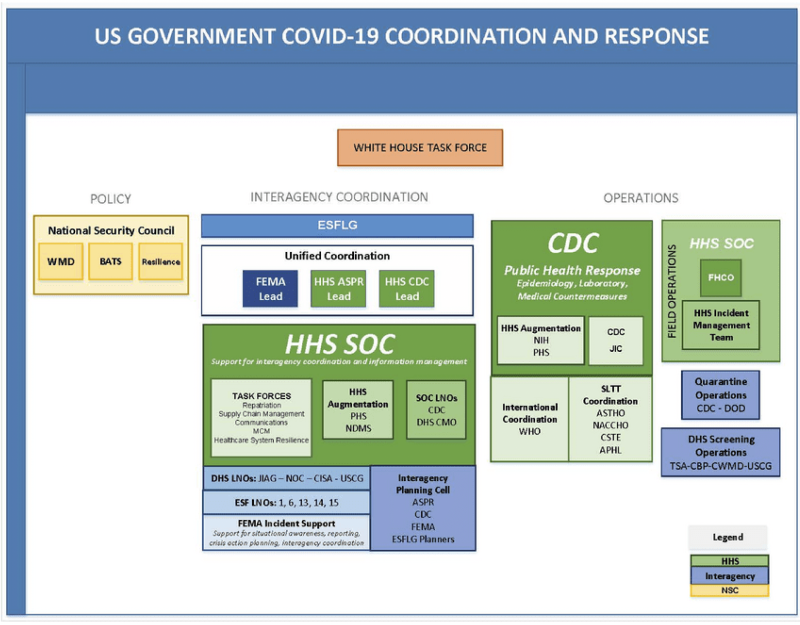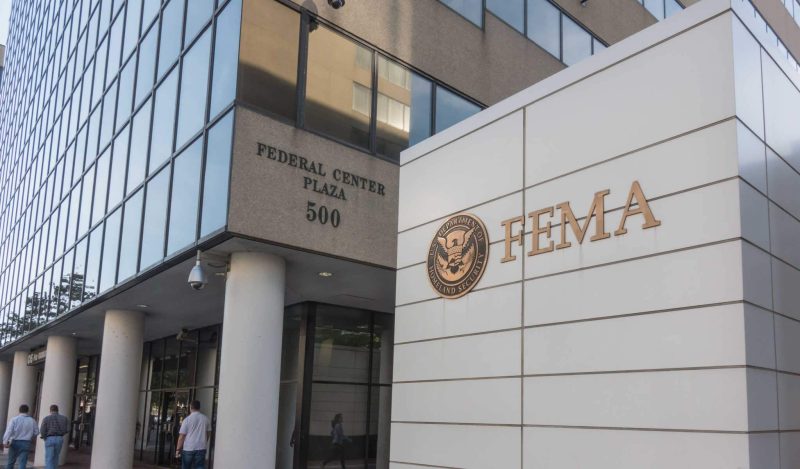Many features of the Covid response catastrophe remain shrouded in mystery:
Who actually designed the US government’s Covid response policy?
We know from official government documents (see below) that it was the National Security Council (NSC), NOT the public health agencies. But who exactly on the NSC was in charge? Who wrote the policy?
What was the US government’s official Covid response policy?
Again, we know it was devised by someone or a group of someones on the NSC, but where is the policy document and what does it say?
Why the secrecy?
On March 11, 2020 Reuters reported that “The White House has ordered federal health officials to treat top-level coronavirus meetings as classified.” Reuters sources said “the National Security Council (NSC), which advises the president on security issues, ordered the classification.”
Furthermore, government officials said “dozens of classified discussions about such topics as the scope of infections, quarantines and travel restrictions have been held since mid-January” and they were held “in a secure area called a ‘Sensitive Compartmentalized Information Facility,’ or SCIF.”
Reuters noted that:
SCIFs are usually reserved for intelligence and military operations. Ordinary cell phones and computers can’t be brought into the chambers. HHS has SCIFs because theoretically it would play a major role in biowarfare or chemical attacks.
Getting answers
It will be difficult to get answers to the crucial Covid response questions, because the NSC has protected itself by classifying Covid-related meetings. We need someone to break the secrecy so we can get the answers the American tax-paying public deserves.
We count on our public health agencies to plan and lead efforts to protect our health. If the national security/military/intelligence agencies replace the public health agencies in designing and implementing policy related to public health, we have a right to know why and what the new policy is.
Regardless of classification, it seems reasonable that the public should be able to get answers to these simple questions:
Regarding the Pandemic Crisis Action Plan – Adapted (PanCAP-A) dated March 13, 2020:
Page 1 of this document, under “Purpose” states:
This plan outlines the United States Government (USG) coordinated federal response activities for COVID-19 in the United States (U.S.). The President appointed the Vice President to lead the USG effort with the Department of Health and Human Services (HHS) serving as the Lead Federal Agency (LFA) consistent with the Pandemic and All Hazards Preparedness Act (PAHPA) and Presidential Policy Directive (PPD) 44.
Q: Is this the document outlining the US Government’s plan for coordinating the response to Covid-19? If not, please refer us to the planning document/s that was/were used.
On p.16, the org chart for the “US Government COVID-19 Coordination and Response” places the White House Task Force at the top.


Below the Task Force, under “POLICY” the org chart places the National Security Council with three sub-groups:


The first is WMD – Weapons of Mass Destruction.
Q: What relationship does WMD have with the Policy underlying the US Government’s Covid response?
Regarding unavailable pandemic planning documents:
In the PanCAP-A there are references to three documents or directives relevant to the National Security Council’s policy for the US government’s Covid-19 response:
- Phases of U.S. Government Response to the 2019 Novel Coronavirus (2019-nCo-V), dated February 11 (p. 10)
- Directions for the Strategic Objectives issued by the NSC Resilience DRG PCC on February 24, 2020 (p. 7)
- COVID-19 Containment and Mitigation Strategy developed by the NSC (p. 8)
Q: Where are these documents/directives? Why are they not included in the PanCAP-A? Please direct us to where we can find them.
Regarding Lead Federal Agency (LFA) for Pandemic Response:
On March 13, 2020, the same day as the official date of the PanCAP-A, President Trump declared a nationwide emergency under the Stafford Act.
President Trump, in his letter invoking the Stafford Act stated that:
In accordance with this determination, the Federal Emergency Management Agency may provide, as appropriate, assistance pursuant to section 502 and 503 of the Stafford Act for emergency protective measures not authorized under other Federal statutes. Administrator Gaynor shall coordinate and direct other Federal agencies in providing needed assistance under the Stafford Act, subject to the Department of Health and Human Services’ role as the lead Federal agency for the Federal Government’s response to COVID-19.
Yet five days later, on March 18, 2020, FEMA was directed by the White House to take over as Lead Federal Agency (LFA) for the government’s Covid response, a role it was not prepared for and had never held before. HHS, the agency named in every pandemic preparedness document as LFA was removed from that position.
Q: What was the reason for this unexpected, unprecedented removal of HHS from its role as LFA?
Q: How did this change affect the role of HHS in the management of the pandemic?
Q: How did this change affect the overall US government response to the pandemic?
Many internal FEMA documents reveal the resulting confusion from FEMA’s unprecedented assignment to the LFA role for pandemic management. Here are just two examples:
From FEMA’s January 2021 COVID-19 Initial Assessment Report.
The agency’s response to COVID-19 has been unprecedented. When the White House directed FEMA to lead operations, COVID-19 became the first national pandemic response that FEMA has led since the agency was established in 1979. It was also the first time in U.S. history the President has declared a nationwide emergency under Section 501b of the Stafford Act and authorized Major Disaster Declarations for all states and territories for the same incident. (p. 5)
From a September 2021 report from the Office of Inspector General (OIG) of the Department of Homeland Security, Lessons Learned from FEMA’s Initial Response to COVID-19.
The PanCAP-A did not address the changes that ensued when FEMA was designated the LFA. Furthermore, FEMA (and HHS) did not update the PanCAP-A or issue interim guidance addressing the changes in critical roles and responsibilities for each agency. (p. 11)
Table I from the OIG report shows the impact of this sudden and unexpected transfer of responsibilities:


Q: Why was the strategic guidance in the BIA, PanCAP and PanCAP-A abandoned?
Q: On what basis was FEMA given the LFA role?
Q: Why was the PanCAP-A not updated to reflect the major change when HHS was removed from its role as LFA?
Q: Was there a different pandemic response plan that was used once FEMA was designated as LFA? If so, please direct us to that plan.
We need a hero
Who will break through the wall of secrecy erected by the national security/military/intelligence community around the Covid response and provide the American public with the information that should so obviously be ours for the asking?
Join the conversation:


Published under a Creative Commons Attribution 4.0 International License
For reprints, please set the canonical link back to the original Brownstone Institute Article and Author.









